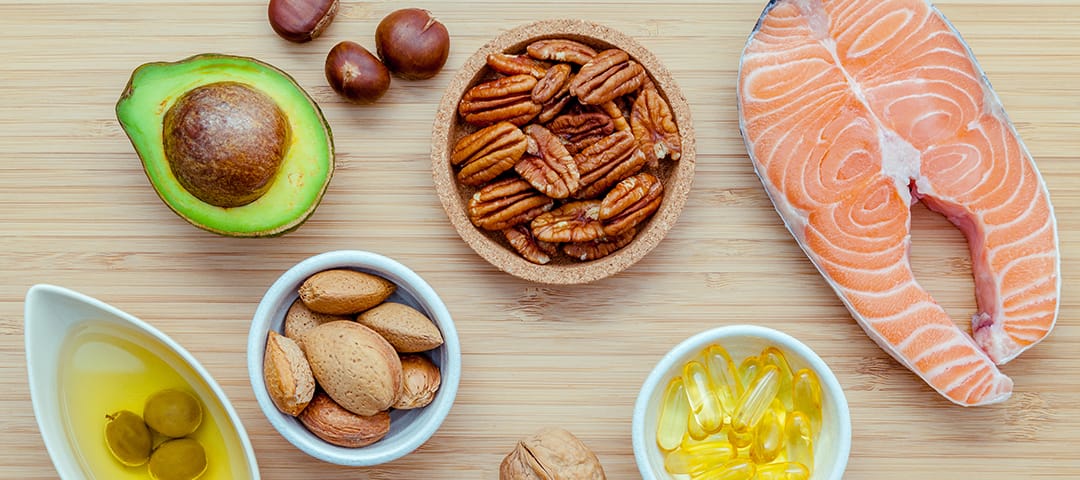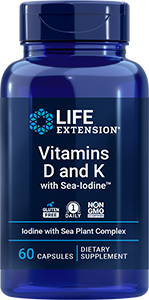
Newsletter
Newsletter
Fish Oil Lowers Triglycerides in Clinical Trial

A recent clinical trial resulted in a significant reduction in serum triglycerides among people with type 2 diabetes who were given fish oil, which contains the omega-3 fatty acids EPA and DHA, compared with a corn oil placebo. Triglycerides are the main type of fat in the body and, when elevated, contribute to the development of cardiovascular disease.
At the end of the 12-week randomized, placebo-controlled trial, triglycerides decreased by an average of 21.39% in the fish oil group, while those who received the placebo experienced an insignificant reduction. Among the various types of circulating lipids that were studied, researchers observed an enrichment in the types that contained omega-3 PUFAs. “Our results suggest that fish oil intervention not only reduced blood triglyceride levels but also impacted the composition of the serum lipidome,” Jieli Lu of Shanghai Jiao Tong University School of Medicine and colleagues wrote.
When comparing the gut microbiomes (bacteria and other microbes that colonize the gastrointestinal system) of participants who received fish oil with those who received a placebo, fish oil had limited effects, yet microbiome composition at the beginning of the study was predictive of the change to triglyceride levels that occurred in response to fish oil.
The trial included 309 men and women with type 2 diabetes and high triglycerides. One hundred forty-seven participants were given 4 grams of fish oil, and a placebo group was assigned to 4 grams of corn oil for 12 weeks. The findings were published in the January 10, 2025, issue of the journal Med.1
"Our study demonstrates the efficacy of omega-3 fatty acids in reducing triglyceride levels in Chinese patients with type 2 diabetes and high triglycerides," the authors concluded. "These findings have important implications for the development of personalized dietary interventions to effectively manage high triglycerides and related metabolic disorders."
Products
Apply What You've Learned: Triglycerides
- Triglycerides, the most common fat in the body, are made from the food we eat and are the way the body stores excess calories in fat cells. Therefore, consuming more calories than we need results in high triglyceride levels.
- High triglyceride levels, high blood pressure, low levels of HDL cholesterol, elevated blood sugar and increased abdominal fat are components of metabolic syndrome: a cluster of symptoms that increase the risk of diabetes and cardiovascular disease.
- Consuming a high amount of carbohydrates has been associated with a rise in blood triglyceride levels. It is important to eat a balanced diet that provides an amount of protein appropriate to body weight (0.36 grams protein per pound or 0.8 grams protein per kilogram), fiber and healthy fats, such as those from fish or olive oil.2
- A blood lipid panel measures triglycerides along with total, HDL and LDL cholesterol. This may be included in routine annual blood testing.
References
- Lu J, Liu R, Ren H et al. Impact of omega-3 fatty acids on hypertriglyceridemia, lipidomics, and gut microbiome in patients with type 2 diabetes. Med. 2025 Jan 10;6(1):100496. doi: 10.1016/j.medj.2024.07.024.
- National Academies of Sciences, Engineering and Medicine, eds. Protein and Amino Acids. In: Dietary Reference Intakes for Energy, Carbohydrate, Fiber, Fat, Fatty Acids, Cholesterol, Protein, and Amino Acids. Washington DC: National Academies Press; 2005. https://nap.nationalacademies.org/read/10490/chapter/12
Related Life Extension Magazine® Articles

Fish Oil and Triglyceride Control
The Mayo Clinic Proceedings links higher EPA and DHA intake to a 35% lower risk of fatal heart attacks. Omega-3 fatty acids (EPA/DHA) reduce high triglycerides and provide additional cardiovascular benefits.

Reduce Artery-Blocking Lipids and Inflammation
A fruit extract was clinically shown to reduce artery-clogging lipids and C-reactive protein, while improving endothelial function.
Highlight
LE Live
Join Life Extension’s Dr. Mike and Dr. Crystal live each week as they answer fan questions about the latest health trends. Recent topics include food cravings, complementary nutrients, vitamin K, creatine, histamine intolerance and more!
Watch NowLife Extension Magazine® Issue Now Online
A remarkable number of healthy-longevity findings have been published over the past 18 months.



